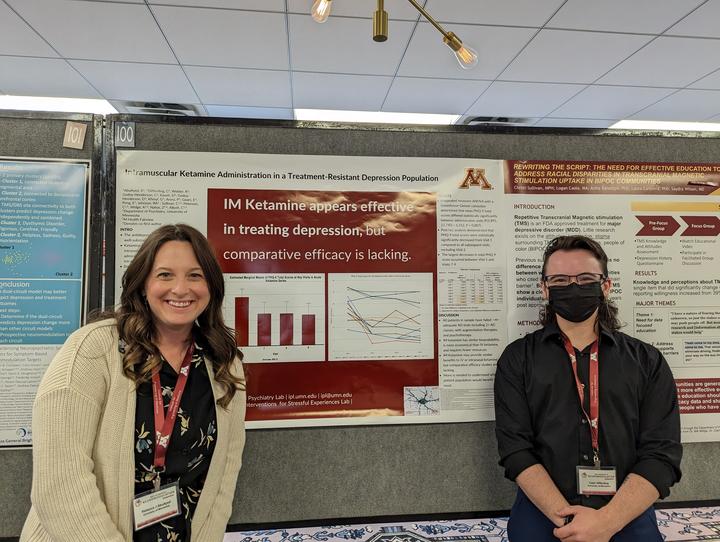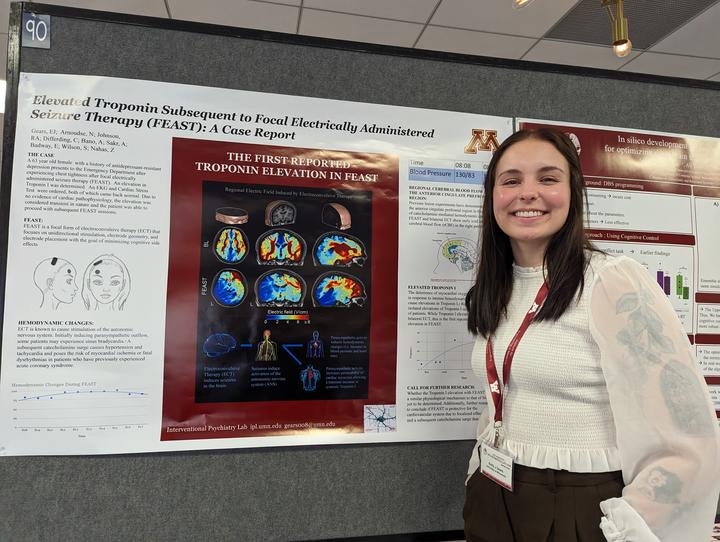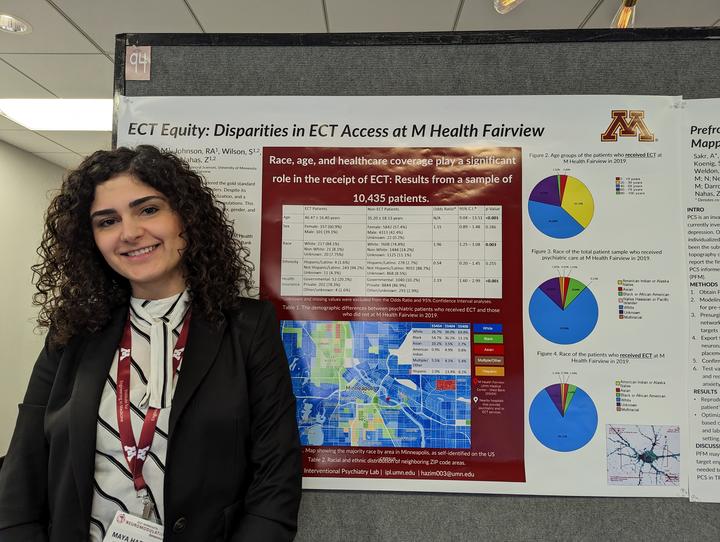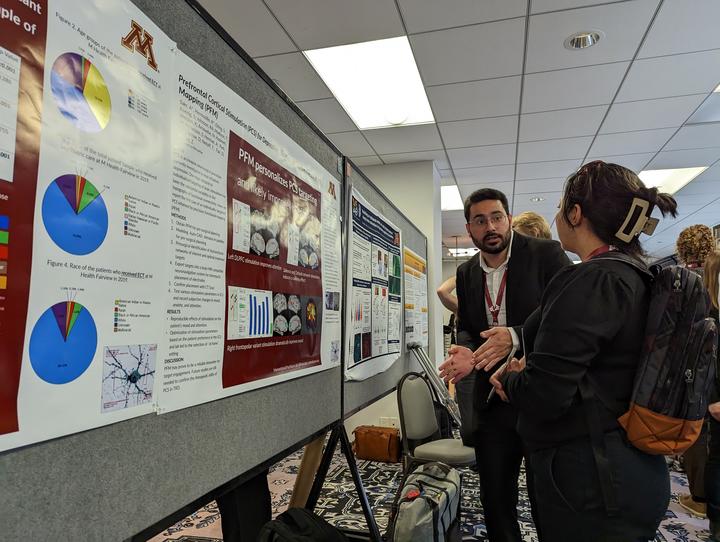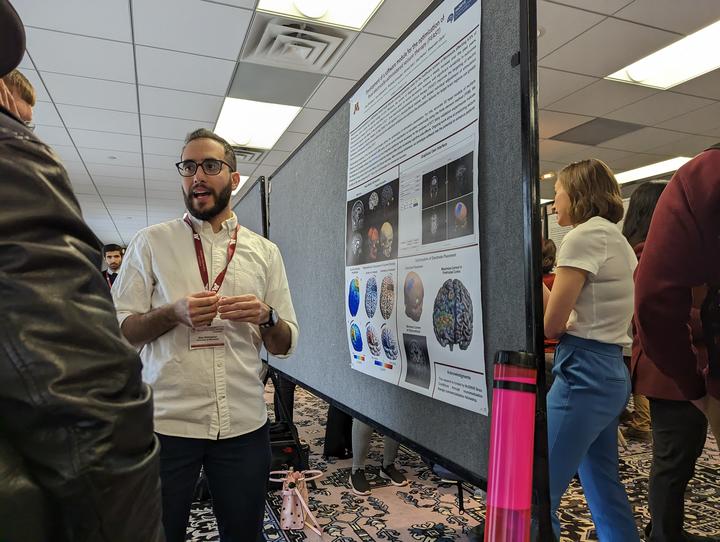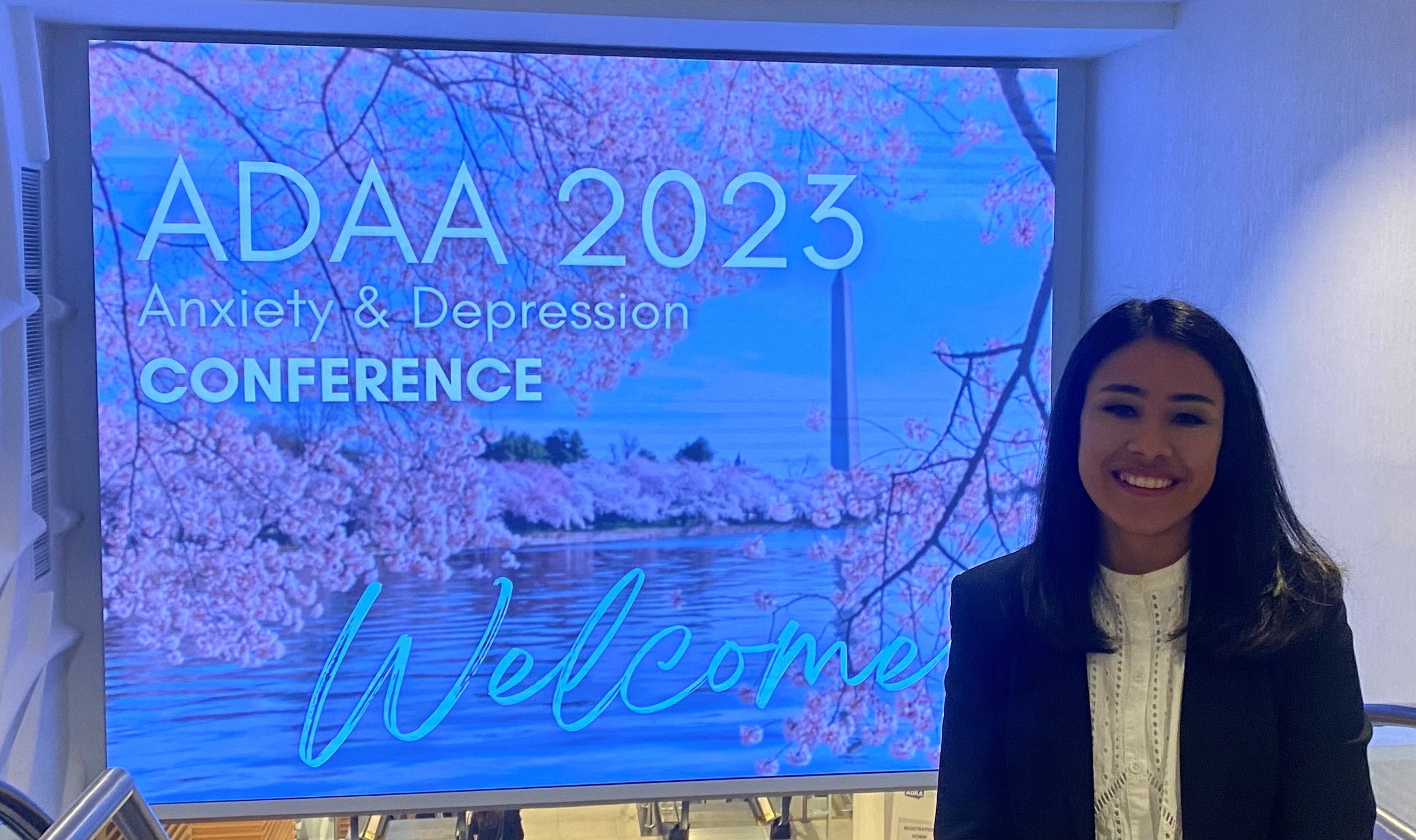Interventional Psychiatry team members share the lab's work at various conferences around the state and nation. We are excited to share our research with the larger community!
The Interventional Psychiatry Lab attended the Neuromodulation Symposium on April 20-21, 2023. The team and partners presented five posters highlighting results of some of our latest research projects. Congratulations to the team, and thank you for sharing your work!
IPL CRC Anila Bano at 2023 ADAA
Interventional Psychiatry Lab Clinical Research Coordinator, Anila Bano, presented "TMS + CBT for Treatment-Resistant Depression with Comorbid Anxiety Disorders: A Case Series" at the ADAA 2023 Annual Conference in Washington DC earlier this month.
Anila worked with Dr. Sabine Schmid to explore the course of TMS + CBT in three patients with treatment resistant depression (TRD) receiving services at the Interventional Psychiatry clinic. TMS refers to Transcranial Magnetic Stimulation, while CBT refers to Cognitive Behavioral Therapy. They conclude that comprehensive diagnostic assessment of lifetime comorbid anxiety disorders may help identify underlying (or primary) anxiety disorders and their role in individual presentations of TRD. Additionally, exact intervention strategies should be informed by the etiology of etiology and history of response to prior biological and psychosocial treatments. Finally, modifications of TMS + CBT for TRD with comorbid anxiety disorders may be needed in terms of sequencing and duration of CBT vs. TMS.
Co-authors included: CD Freilich, R Brower, RA Johnson, AB Herman, S Wilson, and Z Nahas
